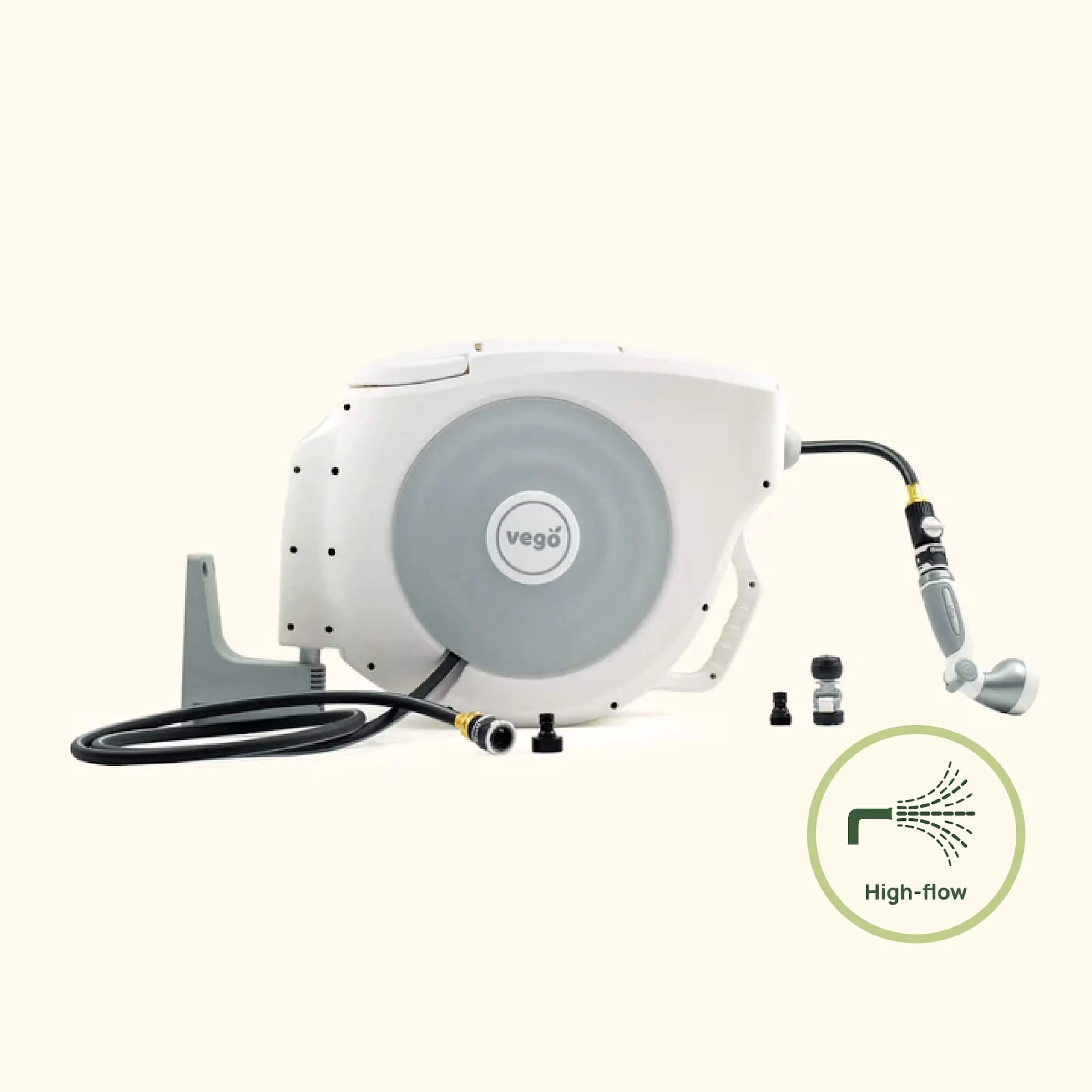How Often To Water Hydrangeas And Top Hydration Tips From A Gardening Expert
They are water lovers, but how often do you water hydrangeas? Learn the best advice to help keep your hydrangeas well-hydrated and looking lush.

Amy Draiss
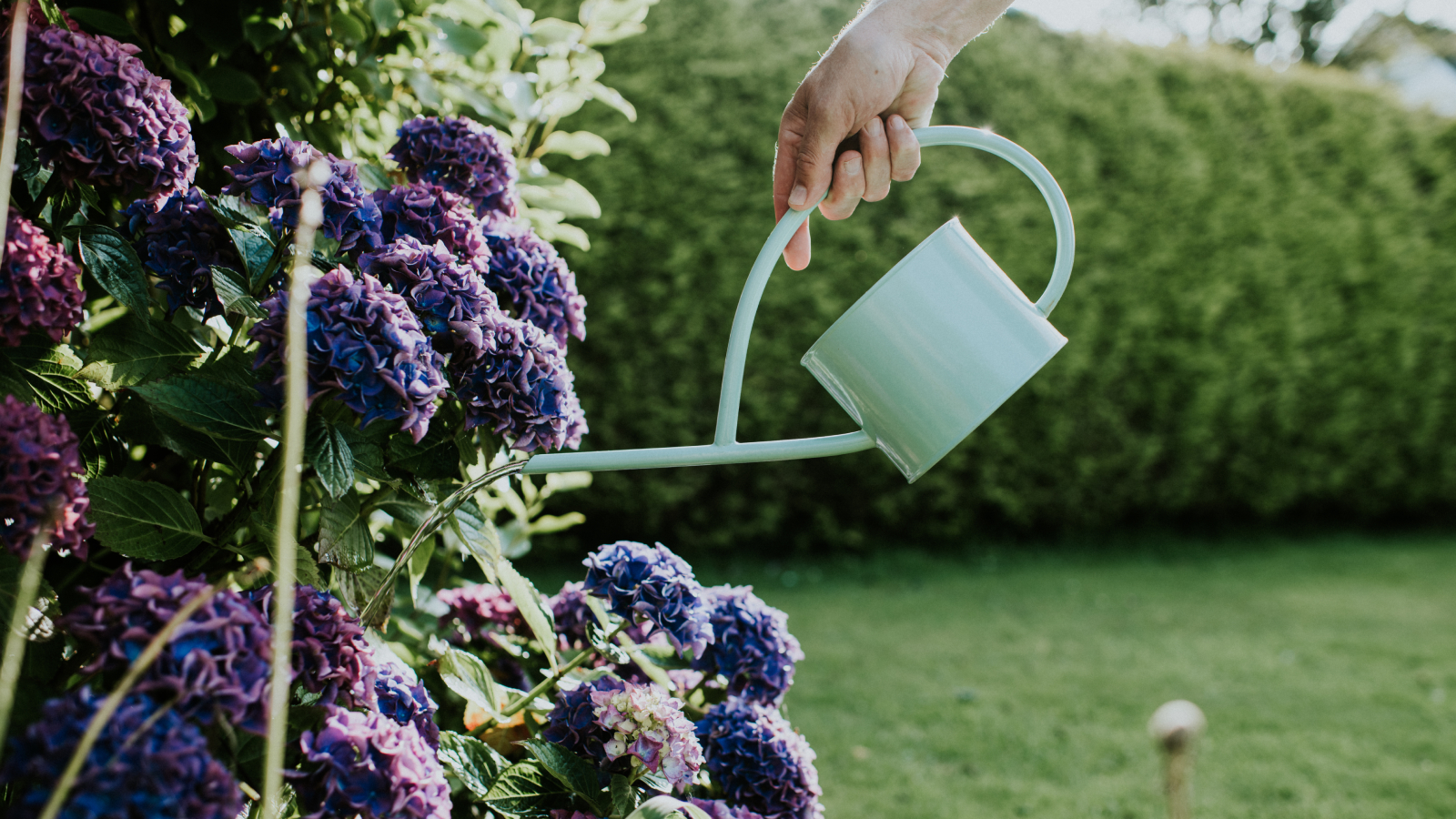
If you love the gorgeous blooms of hydrangeas as much as I do, you’ll want to know how to care for these beauties. The most common questions are about how often to water hydrangea? Do different types of hydrangea have different water requirements? How much water do hydrangeas need? What about potted hydrangeas?
A little hint as to the water needs of hydrangea is in its name which is derived from “hydor” which is Greek for water. When growing hydrangeas, it is important to make sure they get the proper amount of water. They are, indeed, lovers of water which acts as a cooling system for the plant since hydrangeas are not overly fond of hot temperatures.
Read on to learn how to water hydrangeas to keep them in peak bloom.
Hydrangea Water Needs
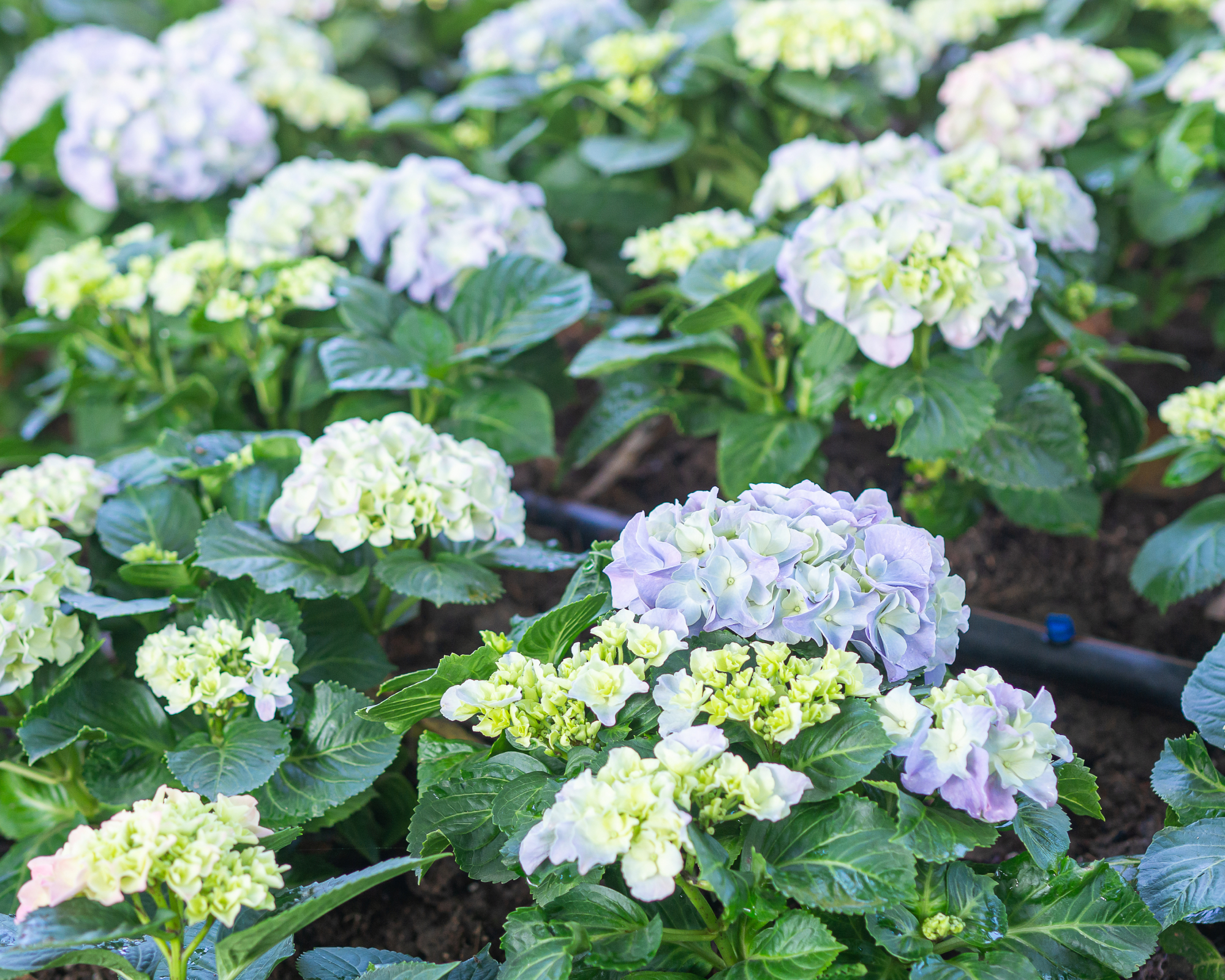
Different types of hydrangea need different amounts of water. Bigleaf hydrangeas (H. macrophylla) are water hogs, especially during hot spells. Oakleaf hydrangea varieties are more forgiving and more drought tolerant.
Smooth leaf hydrangeas are more tolerant than big leaf varieties and panicle hydrangeas are even more drought tolerant. Lace cap hydrangeas are a variation of bigleaf hydrangeas and like them, have similar water needs of consistent moisture.
New plants should always be kept consistently moist while older, more established plants tend to have some drought resistance in general.
How Often To Water Hydrangeas
While all hydrangea varieties prefer to be consistently moist, some as listed above are more tolerant of dry spells than others. In general however, hydrangeas should be watered every 2-3 days depending upon the weather.
Sign up for the Gardening Know How newsletter today and receive a free copy of our e-book "How to Grow Delicious Tomatoes".
If temperatures soar however, you will need to provide the plants with additional supplemental water. Feel the soil. If the top inch (2.5 cm) is dry, it’s time to water. Also, the plant is a great indicator. If the hydrangea wilts, especially if it is hot or the plant is in full sun, irrigate.
How Much To Water Hydrangeas
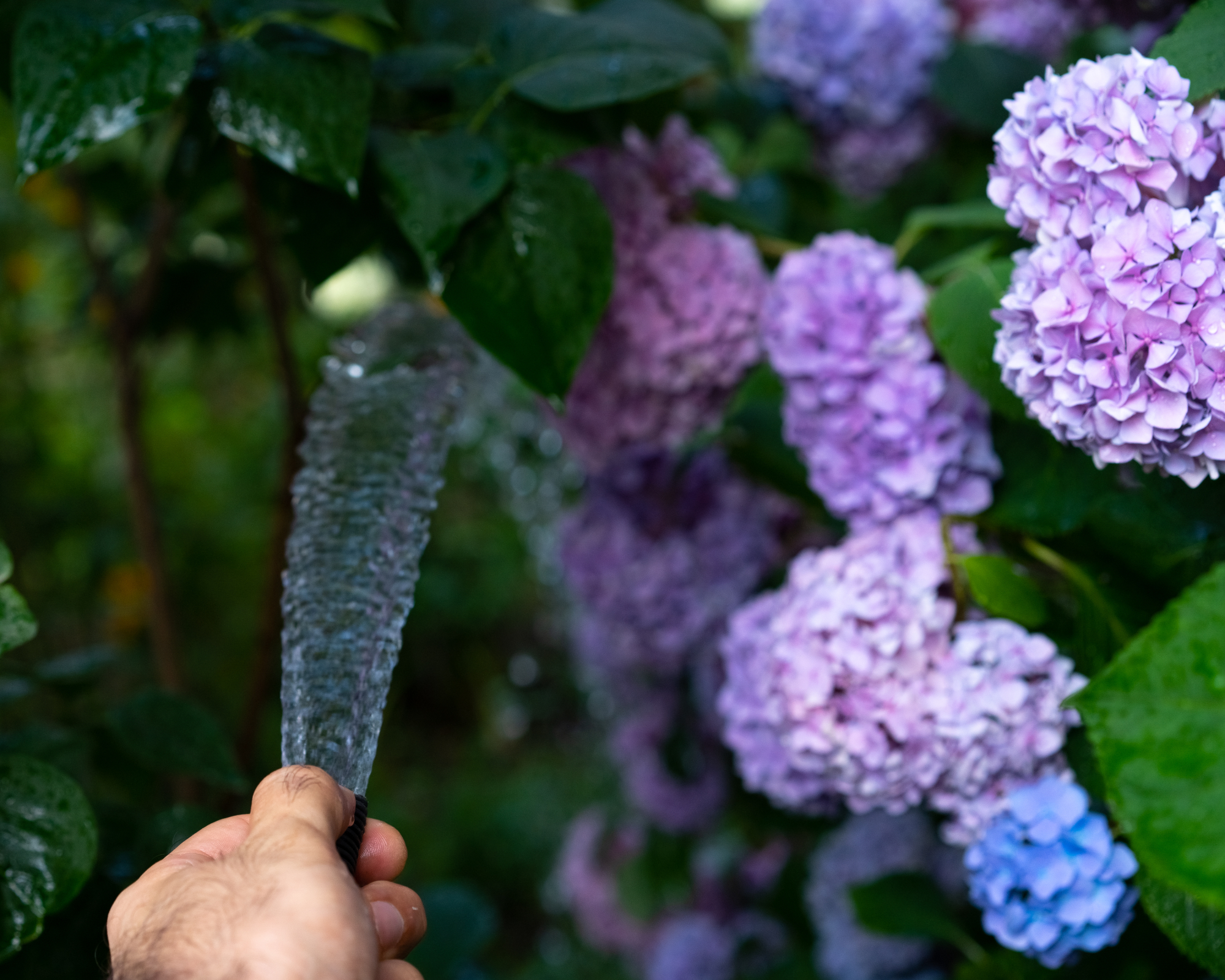
How much to water your hydrangea depends on its location in your landscape. If it is in an area that gets full sun throughout the day, you will need to water more often with more water. In shaded areas, hydrangeas are less prone to not only drying out but to hot roots, so they will need less water.
Hydrangea appreciate rich, well-drained soil. Soil that is well-draining and rich in compost will retain water better than dry, porous soils. If the soil is draining too rapidly, incorporate leaf mold compost, coconut coir, pine needles, compost or wood chips.
Newly planted hydrangea should be watered several times per week with an inch (2.5 cm) of water at a time. More established plants can probably get away with irrigation a few times per week depending upon weather conditions.
Best Time Of Day To Water
Ideally, the best time to water plants is in the morning. This allows the water to sink down and reach the roots of the plant before it evaporates. This will give the plant time to absorb the water and prevent wilting at midday. You may also water in the evening.
Best Watering Techniques
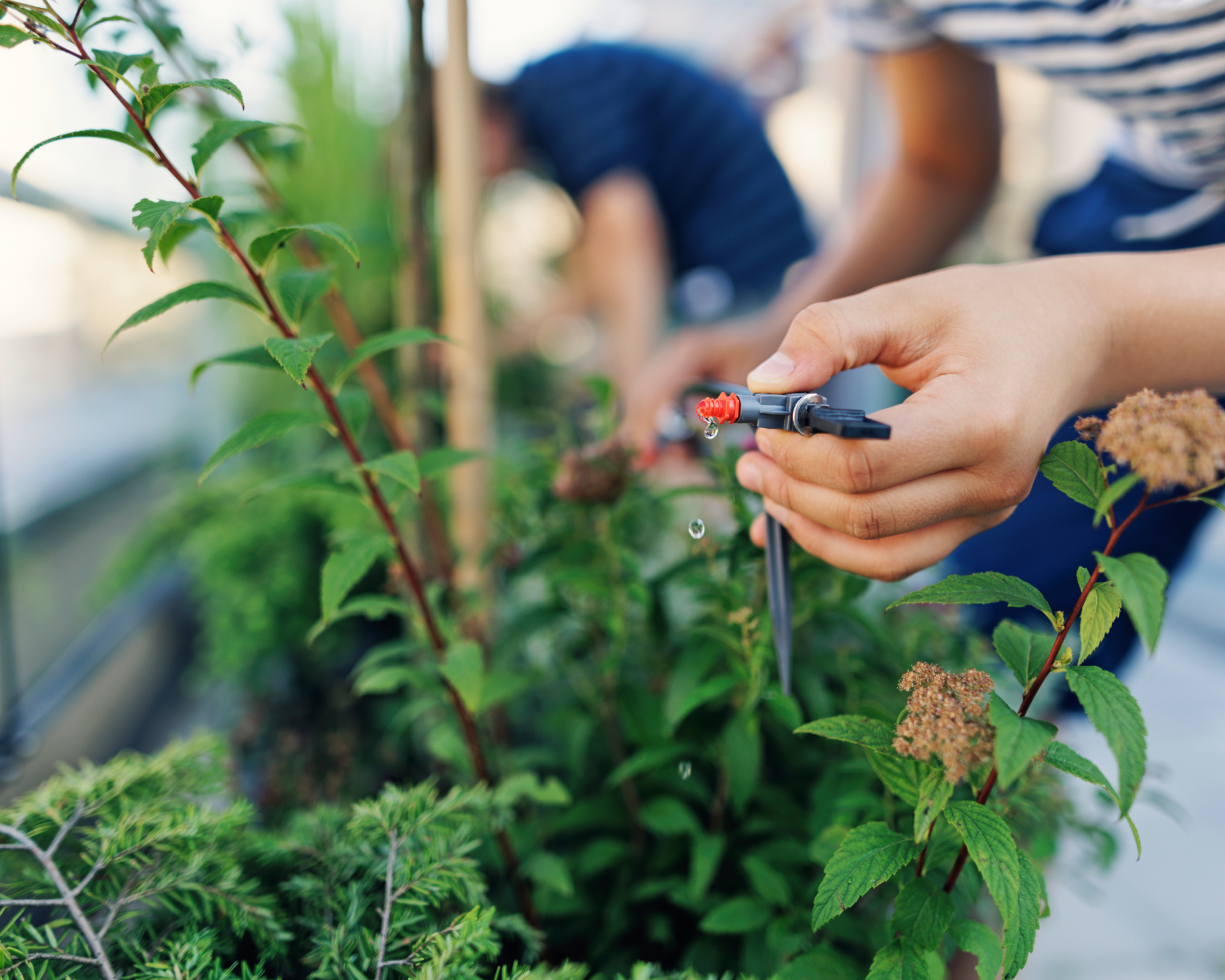
Water slowly and deeply, letting the water reach the roots. Water at the base of the plant; avoid getting the foliage wet which can foster fungal diseases. A soaker hose or drip line is a good way to deliver water directly to the root system in a slow, methodical manner.
A layer of mulch around the root system (keep it away from the woody trunk and stems) can help to retain soil moisture.
Water-Related Issues
While hydrangeas like water, they can be overwatered, especially when combined with inadequate drainage.
Wilted leaves may be a sign of a plant that requires water or, it may be a sign your plant is overwatered. Overwatering also affects the leaves turning them yellow or brown as well as flower production. Mold or fungus is also a sign the plant has been overwatered.
Underwatering can look much the same with wilting, yellow or brown leaves, but the leaves tend to be dry and crispy. Heat stress can also cause wilting. If your hydrangea perks up overnight, the issue is most likely heat stress and not over or underwatering.
Potted hydrangea, like all potted plants, will require irrigation more often since the containers dry out faster than in ground soils. Water every 2-3 days or more as needed. Check for dryness by sticking your finger into the soil, down about an inch (2.5 cm). If the soil is dry, water slowly and deeply at the base of the plant taking care not to wet the leaves.
Fungal spores are spread by improper watering techniques and can be the cause of common hydrangea diseases. Be sure to water at the base of the plant ideally with a soaker hose or drip system and keep the water off the leaves.
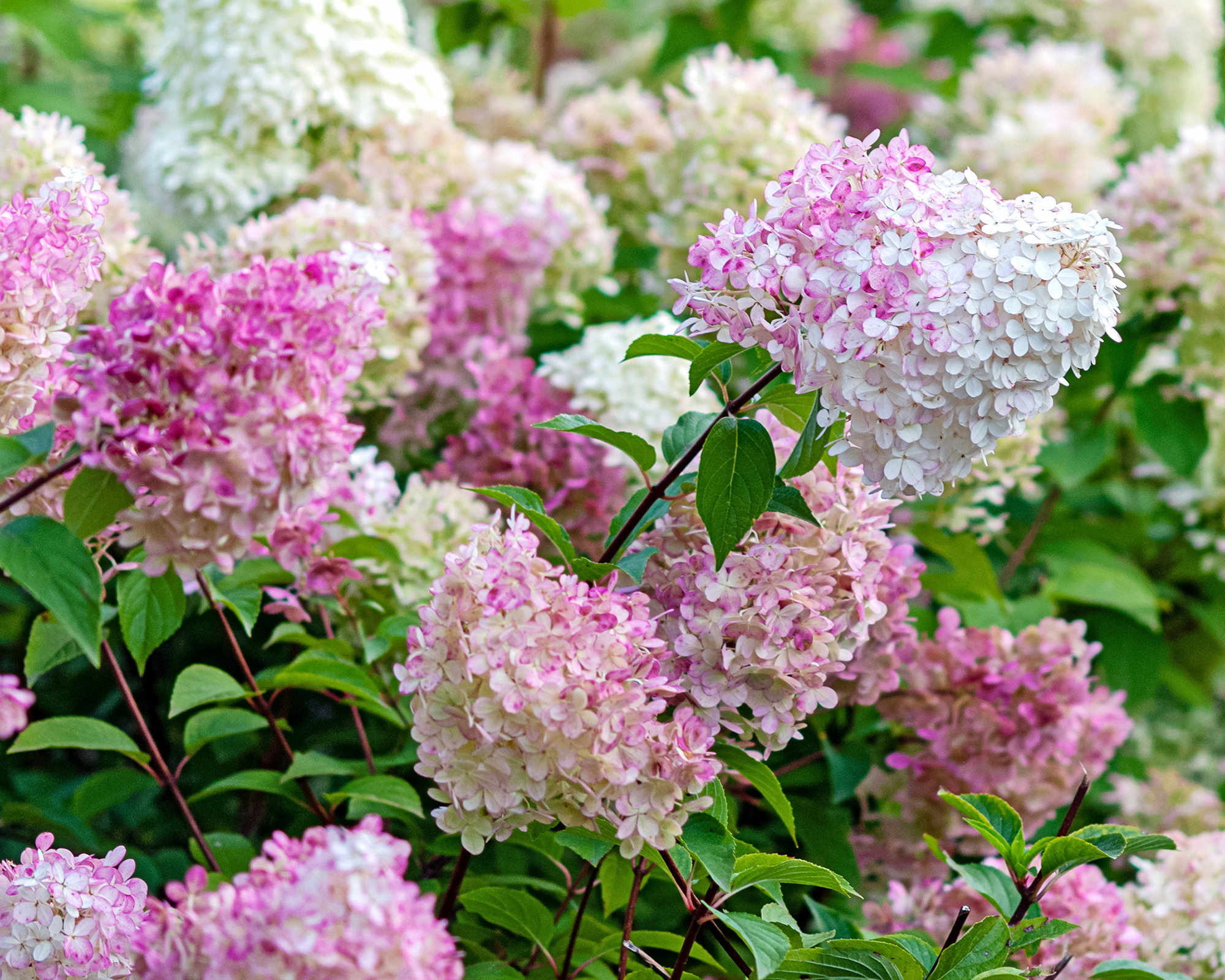
Frequently Asked Questions
How often should you water hydrangeas in pots?
Potted hydrangea should be watered every 2-3 days, more often when conditions are hot and dry. Water at the base of the plant until it flows from the drainage holes. Check the soil daily by sticking your finger an inch (2.5 cm) into the soil.
What is the best watering system for hydrangeas?
A soaker hose or drip system are the best ways to water hydrangea. They will deliver slow, deep water at the roots of the plant, not the leaves.
This article features products available from third-party vendors in the Gardening Know How Shop.

Amy Grant has been gardening for 30 years and writing for 15. A professional chef and caterer, Amy's area of expertise is culinary gardening.
- Amy DraissDigital Community Manager
